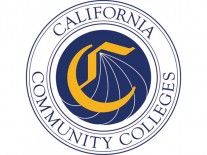 The Board of Governors of the California Community Colleges this week unanimously approved recommendations of a special task force on how to strengthen workforce education throughout the 113-college system. California Chamber of Commerce President and CEO Allan Zaremberg serves as a member of the task force.
The Board of Governors of the California Community Colleges this week unanimously approved recommendations of a special task force on how to strengthen workforce education throughout the 113-college system. California Chamber of Commerce President and CEO Allan Zaremberg serves as a member of the task force.
“There are a lot of jobs out there that need to be filled that don’t necessarily require a four-year degree,” said Zaremberg. “The community colleges are at the forefront to educate and prepare a workforce for those jobs. That’s a need that hasn’t been met and I think this task force has taken an important step to ensure that we fill that void.”
The 25 recommendations will help ensure the state has a workforce with relevant skills and quality credentials that meet employer needs. A key recommendation is to put industry at the forefront of developing career pathways and clearly defining the sequence for learning the skills industry values.
Commissioned by the Board of Governors, the Task Force on Workforce, Job Creation and a Strong Economy includes representatives from community colleges, the business community, labor groups, public agencies involved in workforce training, K-12 policymakers and community-based organizations.
It was entrusted to address California’s anticipated shortage of 1 million skilled workers with industry-valued middle-skill degrees, certificates and credentials. Task force meetings were hosted by the CalChamber.
Task Force Recommendations
Through a series of college and faculty meetings, a number of town hall meetings and extensive research, the task force developed a comprehensive plan consisting of the 25 recommendations focused on seven broad areas:
• Removing barriers to education completion with improved career exploration and planning, work-based learning and other support.
• Putting industry at the forefront of career pathway development with clear, defined sequences for learning industry-valued skills.
• Continuous program improvement based on robust metrics and outcome data.
• Streamlining the curriculum approval process, which currently takes too long, leaving students without timely skills employers require.
• Increasing the pool of qualified Career Technical Education (CTE) faculty. Currently, it’s difficult to attract quality faculty because of education requirements and salary differentials.
• Regional coordination to pool resources and efforts for CTE and responding to industry needs.
• Establishing a dedicated and sustainable funding source for CTE programs. Currently, CTE courses are funded at the same level as general education courses, yet have higher startup and operating costs. Funding gaps are closed with grants, but those are not long-term solutions.
To read the full set of recommendations, please click here.
Job Shortage Ahead
The California Community Colleges Chancellor’s Office Doing What Matters for Jobs and the Economy framework and the Student Success Initiative provided the foundation to launch this task force and also aim to increase workforce and economic competitiveness.
These measures are necessary in light of statistics indicating that there will be 6.3 million job openings in California through 2020, of which 2 million jobs will require a post-secondary certificate or associate degree.

